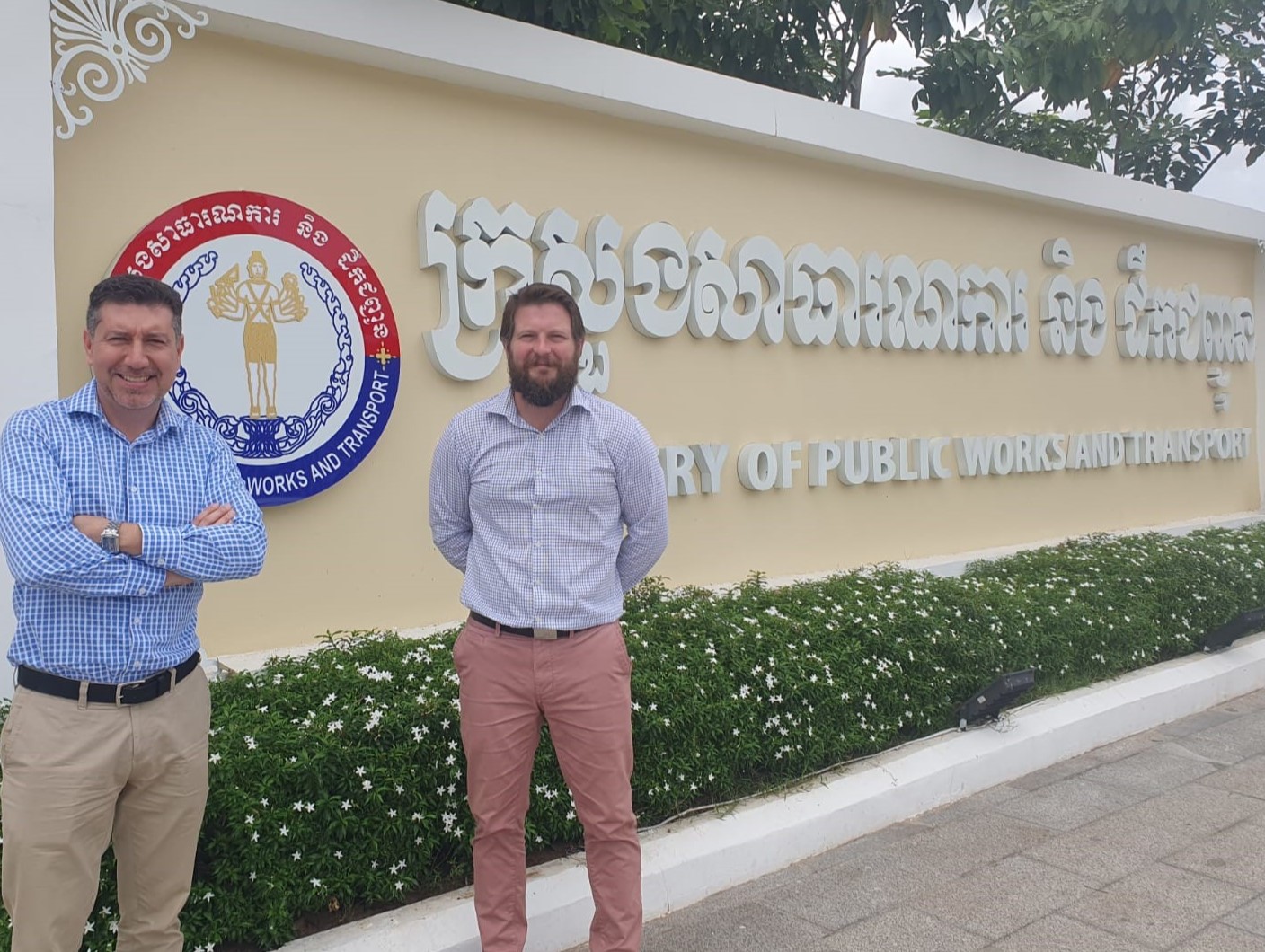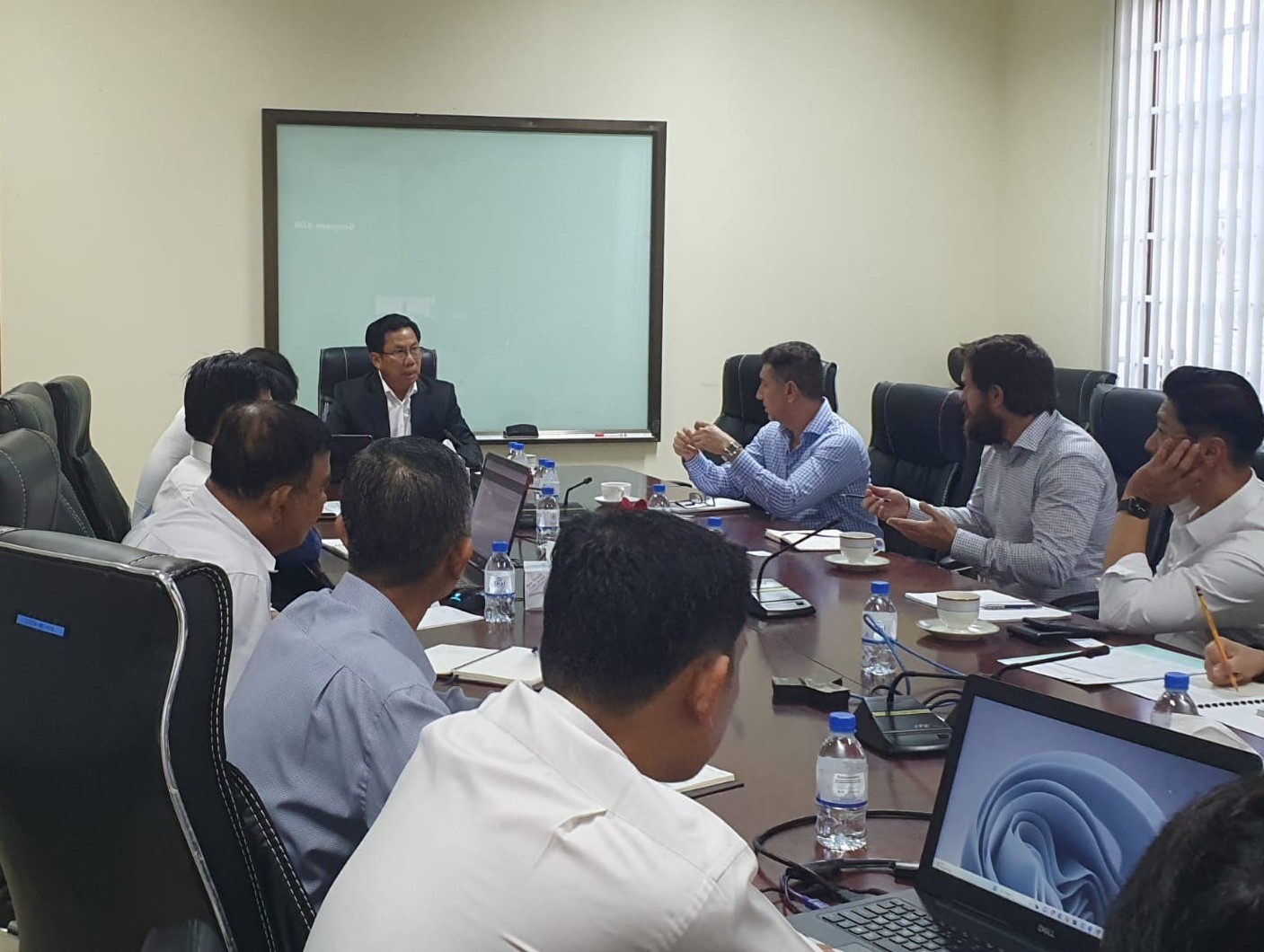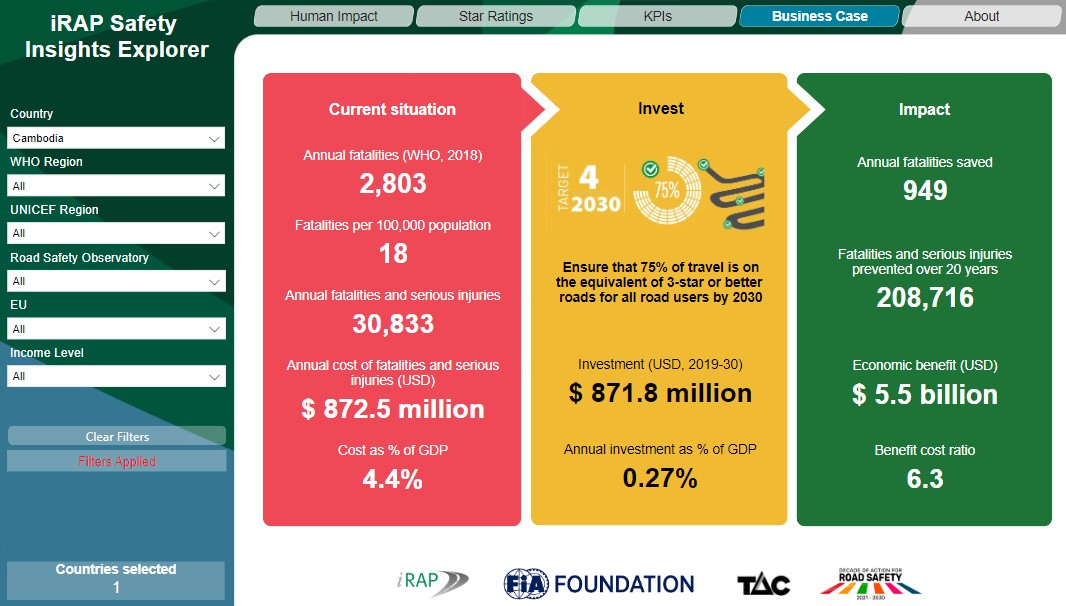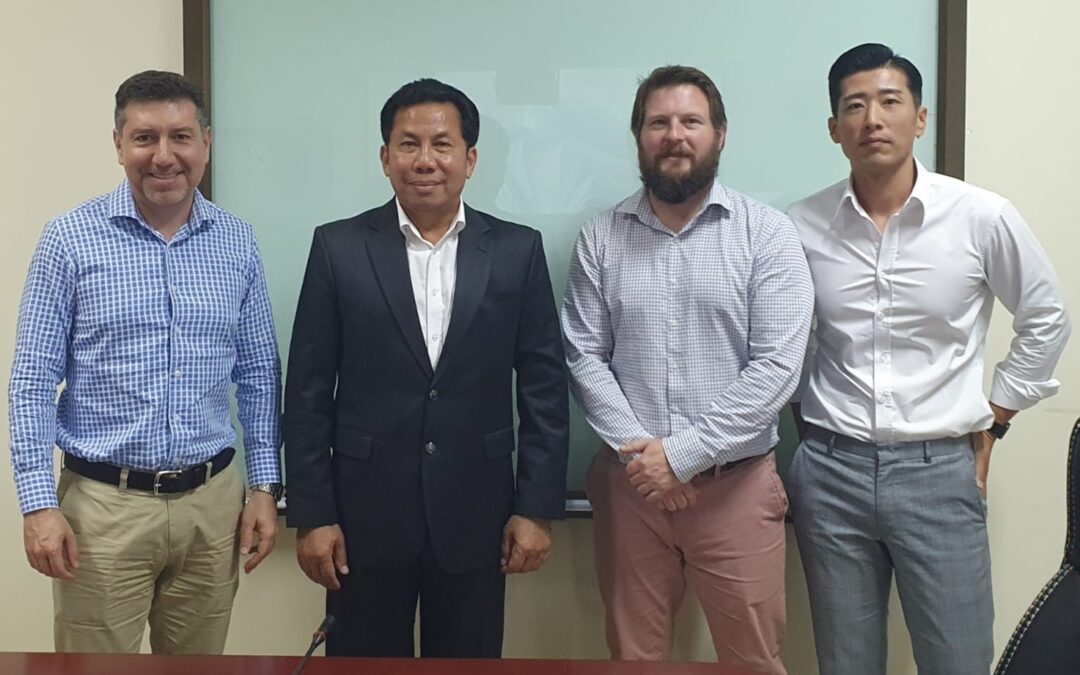Left to Right: iRAP Global Projects Director Julio Urzua, Secretary of State Mr Phneng Sovicheano, iRAP Global Operations Manager Luke Rogers and RoadKorea Branch Manager Jaebum Seo
An “Improving Road Safety in Cambodia” project has kicked off this week supported by the Asian Development Bank (ADB), in partnership with the Ministry of Public Works and Transport (MPWT), iRAP and RoadKorea.
The project aims to support the sustainable and effective reduction of road fatalities in Cambodia through capacity building and the development of cost-effective road safety programmes.
The 12-month project will include the iRAP assessment of a 300km demonstration corridor to produce Star Ratings to identify the level of risk ‘built in’ to the road for pedestrians, cyclists, motorcyclists and vehicle occupants.
Safer Roads Investment Plans will also be developed to inform investment in cost-effective treatments to achieve a 3-star or better safety rating on these strategically important national roads, particularly for vulnerable road users.
This week’s visit is being attended by iRAP’s Global Projects Director Julio Urzua and Global Operations Manager Luke Rogers, as well as RoadKorea Branch Manager and iRAP Accredited Practitioner Jaebum Seo. It includes an inception meeting, selection of the corridor for assessment, and training of project partners including the local ADB team, designers and Ministry staff.


It is likely that the roads selected for assessment will form part of the Asian Highway Network and the Greater Mekong Subregion (GMS) Southern Economic Corridor.
The transport sector plays an important role in promoting growth, employment, equity and efficiency in Cambodia, accounting for 65% of freight movements and 87% of passenger movements.
The national and provincial road network of 16,292 km complements a rural road network of approximately 47,910 km.
Most of the road corridors in Cambodia are classified Class III (two lanes) with limited levels of service, creating a high-risk road transport system. Road traffic crashes cause frequent trade and traffic disruption.
Cambodia stakeholders gathered in July last year for a National Road Safety Consultation Workshop to shape the country’s National Plan for the Decade to 2030. iRAP was pleased to provide input.
Partner-led iRAP activity has already assessed 558km of roads in 2016 under the Cambodia-China Friendship Road Safety Project including N1, N3 and N4. The assessments have influenced the safety of USD$77 million of infrastructure investment.
Six schools have also been assessed using the iRAP Star Rating for Schools application to inform safer school journeys for local children.
Road safety capacity is growing. To date, 85 road safety stakeholders have received iRAP training delivered locally, along with 73 people who have benefited from iRAP global/on-line training.
According to iRAP’s Safety Insights Explorer, achieving UN Target 4 for greater than 75% of travel on 3-star or better roads for all road users in Cambodia by 2030 stands to save an estimated 208,716 lives over the 20-year life of road treatments with an economic benefit of USD$5.5 billion – $6 for every $1 spent.

Images credit: Julio Urzua

















